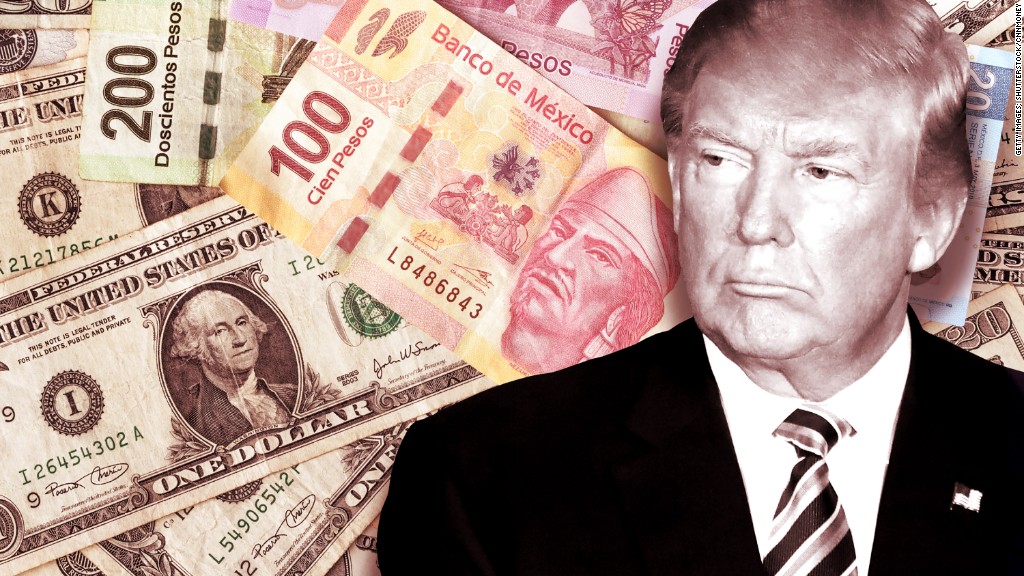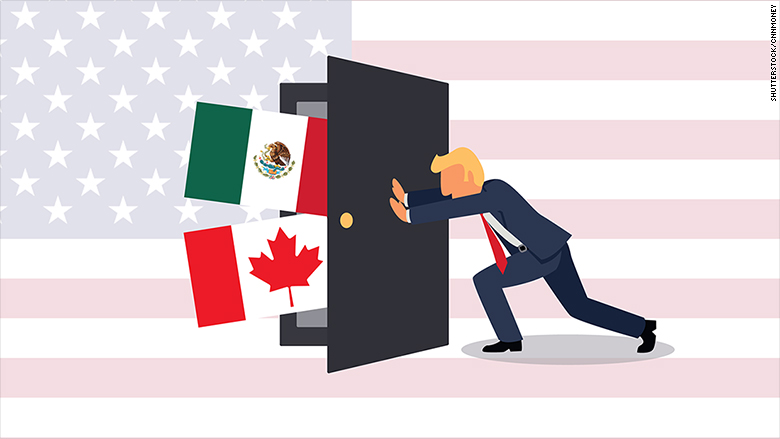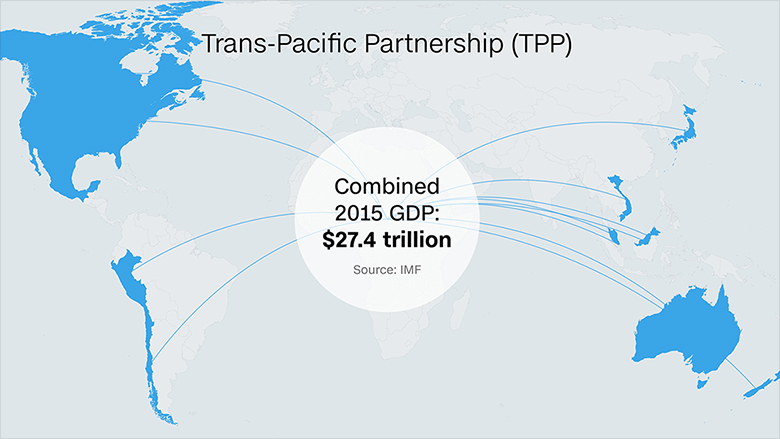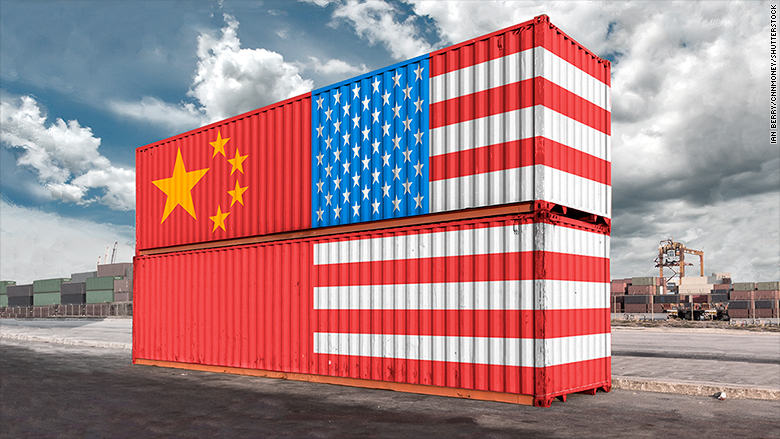
World trade was already stalling before Donald Trump won the U.S. presidential election. Now, one of the main engines of global economic growth could go into reverse.
Trump has promised to rip up major trade deals and slap huge tariffs on goods from China and Mexico, two of the Unites States' biggest trading partners.
"The global economy, international trade and financial markets face an uncertain new world -- with the new [U.S.] leader ... likely to take the nation down a new isolationist path," said Lim Say Boon, chief investment officer of DBS Bank in Singapore.
Global trade is stuck in a deep malaise and may even be suffering from "cardiac arrest," researchers at the Organization for Economic Co-operation and Development warned recently. The volume of trade between nations even declined in the first quarter of this year.
Britain's vote in June to exit the European Union, its biggest trading partner, delivered a shock to global business. Trump, who said his victory would be "Brexit plus plus plus," could make matters worse on a number of fronts.
Related: Trump win sparks global market turmoil
Canada and Mexico
Trump has repeatedly blasted NAFTA -- the free trade deal between Canada, Mexico and the U.S. -- claiming it "has destroyed our country." He says he will entirely renegotiate or "terminate" the agreement.
Experts say tearing up NAFTA would be hugely disruptive for all three economies, and it's unclear what the U.S. would gain from doing so.
Related: 'Without NAFTA, we would be out of business'
"It is hard to know what he hopes to achieve," said Paul Ashworth, chief U.S. economist at Capital Economics. He described Trump's main objections as "economic gobbledygook."

Related: Donald Trump check -- Has NAFTA 'destroyed our country?'
The Pacific and Europe
Two other huge international trade deals negotiated under President Barack Obama are in even greater danger.
Trump has made no secret of his scorn for agreements like the Trans-Pacific Partnership (TPP) and the Transatlantic Trade and Investment Partnership (TTIP).
"TPP and TTIP are dead," Ashworth said.
Related: Trump myths vs. reality on trade
The TPP -- a deal between the U.S. and 11 other nations dotted around the Pacific Rim -- still hasn't been ratified by Congress. Senate Majority Leader Mitch McConnell said in September the deal has "serious flaws" and "will not be acted upon this year."

There appears to be little chance it will be revived: Trump has called it "terrible" and a "rape" of American workers.
Related: Has 2016 killed the TPP?
Officials say negotiations are still underway over the TTIP, a planned deal between the U.S. and the 28 members of the EU. But a German official said recently that talks were "de facto dead." France has called for them to be halted.
Experts say it's very unlikely Trump would seek to pursue the deal.
"The election victory of Trump could exacerbate what so far has been a rather restrained trend towards more protectionism in the Western world," said Holger Schmieding, chief economist at Berenberg, a German bank. "The result will be slower potential growth."
China
China, the world's second largest economy, has been a frequent punchbag for Trump.
"We can't continue to allow China to rape our country, and that's what they're doing," he said in May, referring to the fact that China exports much more to the U.S. than the other way round.
Trump has repeatedly accused Beijing of manipulating its currency to make its exports more competitive and has said he wants to hit Chinese goods with a 45% tariff, a move experts warn could start a trade war.
Related: How China doesn't play fair on trade
"Tariffs are possible further down the line, but won't be the first option," Ashworth said. Trump could lodge a series of complaints against China at the World Trade Organization first.

If Trump does impose high tariffs on merchandise from China, the biggest source of U.S. imports, the impact would be significant.
"I don't think there's any way he can find a replacement," said Jianguang Shen, chief economist at Mizuho Securities Asia. "The replacement must be more expensive -- then inflation will be higher."
Related: Billionaire: Chinese real estate is 'biggest bubble in history'
Still, some experts think Trump may hold back from some of the threats he made on the campaign trail.
"It is plausible that the new administration will not ramp up tariffs on Mexican and Chinese imports, content instead to bury the prospect of new trade agreements and make more use of enforcement clauses in existing agreements," Standard Life Investments said in a note to clients Wednesday.


